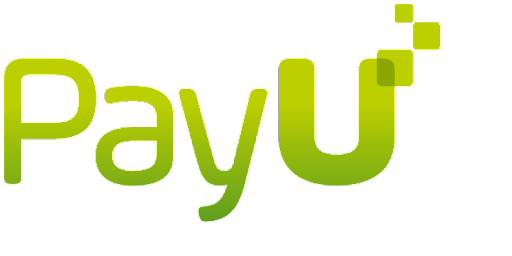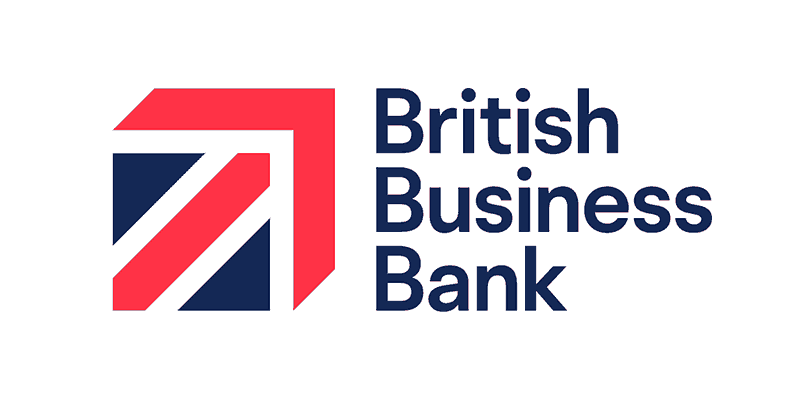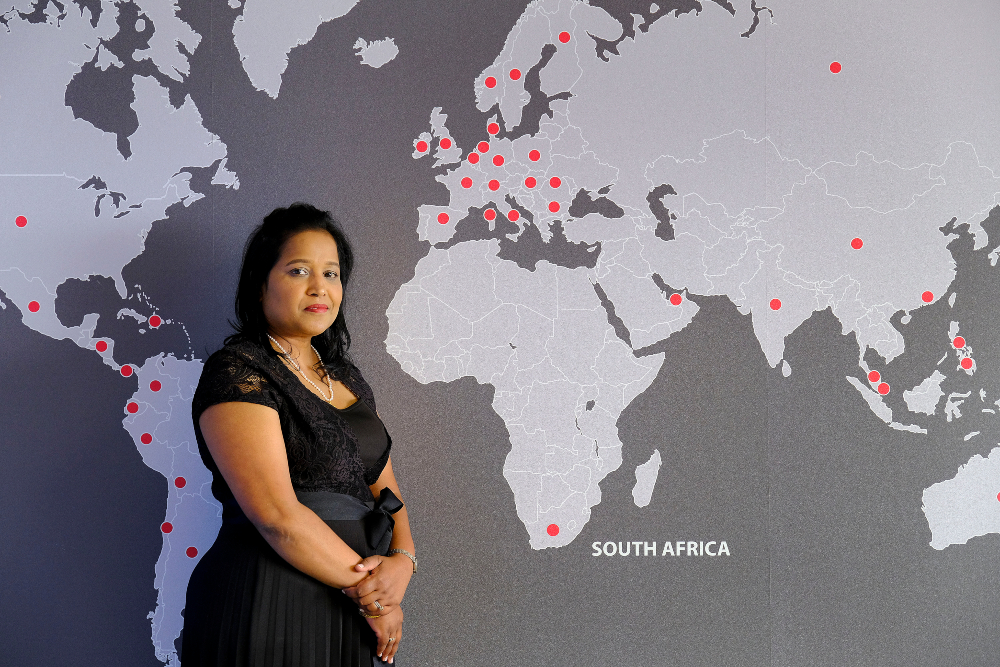Published
- 04:00 am

Related News
- 02:00 am

Strategic collaboration to ensure a seamless identity verification process for PayU merchants
PayU, the payments and fintech business of Prosus, today announces its collaboration with AU10TIX, an identity management company, to screen customers and ensure a frictionless onboarding process.
The PayU-AU10TIX partnership will streamline the merchant onboarding process by utilising AI and automation to rapidly authenticate identities. The new service will be used to verify the identities of individuals or representatives of businesses connecting to PayU directly or via marketplaces powered by PayU’s payments solution.
PayU’s partnership with AU10TIX means that identities can be validated in seconds, enabling PayU to maintain its reliable and efficient merchant onboarding and re-verification processes. As the risk of criminals using online platforms to conduct illicit activity increases, this collaboration will also ensure that PayU’s processes remain streamlined and secure for both shoppers and merchants, further strengthening PayU’s crime-prevention capabilities. With AU10TIX’s innovative technology, PayU can continuously optimize its services to ensure more accurate identity verification, increased automation levels, and greater security for fighting the latest fraud attack vectors.
AU10TIX’s deep learning algorithm knows when an ID is manipulated, and the partnership with AU10TIX will further allow PayU to overcome the growing threat of synthetic identities. Using automated and innovative technologies may also allow PayU to introduce additional measures to further strengthen security in the future.
The AU10TIX integration has initially been implemented in Poland and Czech Republic and will soon be introduced across EMEA markets and elsewhere around the world, including Latin America which has seen an e-commerce boom since the start of the pandemic.
Andrzej Bassara, Chief Operations Officer of PayU: “The number of international merchants cooperating with PayU is growing exponentially, necessitating collaboration with companies like AU10TIX, a market leader in identity verification, to offer our clients the most efficient on-boarding and re-verification process.”
“AU10TIX is meeting our customers’ expectations around security by offering an automated solution that utilises advanced AI to accurately authenticate identities without the need for a human agent to review. An automated ID authentication process will rely upon an algorithm which will allow for customers’ identities to be confirmed in real time, making PayU’s processes more streamlined and secure.”
Carey O'Connor Kolaja, CEO of Au10tix: “Preventing identity fraud is at the core of what we do at Au10tix, and we are delighted to support PayU in their efforts to automate the merchant onboarding process. Our collaboration will ensure that PayU can continuously offer their users a safe and secure experience, while increasing the efficiency and pace of the processes to confidently verify identities.”
Related News
- 02:00 am

Related News
- 06:00 am

Catherine Lewis La Torre, CEO, British Business Bank, said: “Throughout 2020/21, in response to the pandemic the British Business Bank performed a role vital to the UK government, finance markets and the economy as a whole.
“Our financial support to smaller businesses has increased by more than £80bn during the last financial year, and now stands at nearly £89bn.
“We look forward to using our unique position in the market to support businesses further as they recover and return to growth once more, thereby rebuilding the foundations of the UK’s future prosperity.”
The British Business Bank, the UK’s national economic development bank, today publishes its 2021 Annual Report and Accounts.
Key highlights
The Bank’s performance against its six objectives in the last financial year was as follows:
· Increasing the supply of finance to smaller businesses – The stock of finance supported through the Bank’s core finance programmes was £8.506bn at the end of March 2021. This was below its target of £9.085bn due to displacement of existing programmes by Covid-19 emergency finance schemes. These offered £80.4bn of finance to almost 1.7m businesses. This emergency support, which is not included under the Bank’s core programmes, was evenly distributed across the Nations and regions of the UK.
· Helping create a more diverse finance market for smaller businesses – 94.5% of the finance supported by the Bank’s core finance programmes in 2020/21 was delivered through smaller, newer or alternative finance providers, exceeding its 94.0% target.
· Identifying and helping to reduce regional imbalances in access to finance – The Bank’s flow of gross deployment outside of London was £943m, over 8% above its target of £868m. The Bank announced 78 new delivery partners across its programmes, bringing the total number of providers it was working with to 218 at the end of March 2021.
· Encouraging and enabling SMEs to seek the finance best suited to their needs – Prompted awareness of the Bank amongst SMEs surveyed was 25%, meeting the target set. 41% of SMEs surveyed said they would consider contacting the Bank for information about finance, marginally below the target of 42%.
· Being the centre of expertise on smaller business finance in the UK, providing advice and support to the Government – The Bank was independently assessed as having deployed its expertise to government effectively, ranging from advice on Covid-19 scheme development and delivery to fulfilling priorities on research and market engagement. The Bank published six major reports, including Alone, together: Entrepreneurship and diversity in the UK.
· Achieving its other objectives while managing taxpayers’ money efficiently – The Bank achieved an adjusted return of 14.6%, significantly exceeding its 0.10% target. This was driven by the generally strong performance of equity finance markets in 2020/21.
Core programme highlights
- The Start Up Loans programme had a record year, providing over 11,000 loans – a year-on-year increase of over 30%
- The Bank’s regional funds – the Northern Powerhouse, Midlands Engine and Cornwall and Isles of Scilly Investment Funds – provided a £357m flow of finance into their regional finance markets in 2020/21.
- The Regional Angels and Enterprise Capital Funds programmes made combined total commitments of £100m to support seed and early stage equity funding for high-growth businesses.
Revised mission and new climate change objective
In this year’s report the Bank also announces a revised mission and a new climate change objective:
Revised mission – ‘To drive sustainable growth and prosperity across the UK, and to enable the transition to a net zero economy, by improving access to finance for smaller businesses.’
New climate change objective – ‘To support the UK’s transition to a net zero economy.’
These changes reflect the Bank’s commitment to playing an active role in driving a more sustainable economy.
Lord Smith of Kelvin, Chair of the British Business Bank, said: “Our job now is to help businesses during the recovery period and beyond, strengthening the economy in the process. We are emerging from the pandemic more resilient and capable than ever, ready and willing to help more UK businesses to prosper and grow sustainably.”
About the British Business Bank
The British Business Bank’s core programmes support over £8.5bn of finance to almost 95,000 smaller businesses. Between March 2020 and March 2021, the British Business Bank was responsible for running the government’s Coronavirus business loan schemes, delivering more than £80bn of finance to almost 1.7m businesses.
As well as increasing both supply and diversity of finance for UK smaller businesses through its programmes, the Bank works to raise awareness of the finance options available to smaller businesses. The British Business Bank Finance Hub provides independent and impartial information to businesses about their finance options, featuring short films, expert guides, checklists and articles from finance providers to help make their application a success. In light of the coronavirus pandemic and EU Exit, the Finance Hub has expanded and it now targets a wider business audience. It continues to provide information and support for scale-up, high growth and potential high growth businesses, but now provides increased content, information and products for businesses in survival and recovery mindsets. The Finance Hub has been redesigned and repositioned to reflect this, during this period of economic uncertainty.
British Business Bank plc is a public limited company registered in England and Wales, registration number 08616013, registered office at Steel City House, West Street, Sheffield, S1 2GQ. It is a development bank wholly owned by HM Government. British Business Bank plc and its subsidiaries are not banking institutions and do not operate as such. They are not authorised or regulated by the Prudential Regulation Authority (PRA) or the Financial Conduct Authority (FCA). A complete legal structure chart for the group can be found at www.british-business-bank.co.uk
Related News
- 08:00 am

Robocash group, a global fintech holding, rolls out the mobile application UnaCash to offer a seamless experience of getting a cash loan without leaving home or work. This application laid the groundwork of the digital bank UnaBank in the Philippines.
After 7 years of profitable expansion in Asia and Europe, Robocash Group continues to grow its business in the Philippines with the new product offering personal loans, UnaCash. The new service lets customers get a loan online and transfer the amount to any open bank account without leaving home. Previously, in December 2020, the company launched the service UnaPay in the Philippines, offering two new products : the “Buy Now, Pay Later” payment option and salary-linked loans. UnaCash, the latest business unit of the holding, is designed to address the customers’ financial needs in a convenient and reliable way.
With UnaCash, users can obtain a credit online and transfer it to an account opened at any bank. Customers have the option to borrow up to USD 600 for the period of 1 to 6 months. The maximum loan amount will be increased to USD 2,000 in the foreseeable future. Customers can repay the loans online or offline once in two weeks through one of the partner banks or a partner outlet.
At present, UnaCash has partnered with the 6 biggest banks in the Philippines. Favoring progress towards improved conditions, UnaCash will soon start accepting online repayments from any bank account and launch recurring payments with special privileges for its clients.
“We see the great market potential in the Philippines. At present, 63.3% of Filipinos have a mobile phone. As of May 2021, 80.2% of Filipino adult registered Internet users have already purchased something online. This is a highly engaged mobile audience with rapidly growing e-commerce in the region. However, there is still a significant number of customers in the region without solid credit history, resulting in many people being unbanked. In 2019, 71% of the population did not have a personal bank account, and about 15% were underbanked. By emphasizing customer experience, we aim to provide a better financial infrastructure. Integrating all our services into UnaBank will enable us to create an efficient ecosystem and deliver even better value to our customers”– said Sergey Sedov, Chief Executive Officer at Robocash Group.
Related News
- 04:00 am

- 32% of UK households with children have struggled to pay down outstanding debts since March 2020, compared to 16% of those without children
- UK households report that their outstanding debt is nearly £9,500
- Of those financially struggling, 60% are not seeking any financial help or support – comparethemarket.com is urging anyone who is still financially struggling to speak with money management services for free confidential guidance and check online how you could save by switching household bills
While most UK households have felt the financial impact of the pandemic, some have suffered more than others. Almost a third of families with children at home (32%) are struggling to pay down debt which has accrued since the first UK lockdown began in March 2020, compared to just 16% of households without children, according to the latest Household Financial Confidence Tracker from comparethemarket.com.
Excluding mortgage repayments, UK households say that their debt sits at nearly £9,500. Families with children have more debt to burden, with this group reporting they have an average debt total of almost £12,000. By contrast, families without children say their debt equates, on average to nearly £8,000 Across all groups, households report that their highest debt is on personal loans, at an average of £2,688 per household, followed by credit cards (£1,900) and debit cards (£881).
Of those struggling to pay off outstanding debt, the majority are suffering in silence - 60% have not sought financial support, either through universal credit, debt charities or charities like Citizens Advice. Many could be unaware that there are solutions and advice available to them that may help reduce their debt. comparethemarket.com is urging those who are struggling to seek financial guidance and to also check whether they could save hundreds of pounds by switching household bill providers.
In order to manage debt levels more than a quarter (29%) of UK households have started a budget, 27% sold unwanted or unused items such as furniture, toys or clothes, and 26% decided to put off any large purchases. Confirming how some households have struggled to save for a rainy day, nearly a quarter (24%) have tried to pay down debt instead of putting any money into savings. Consolidating debts can be an effective way to reduce debt but only 8% have used this method.
However, there is hope that this financial uncertainty will be short lived as a third (33%) of families with children anticipate their finances will be in a better position by the end of the year than they are today.
Ursula Gibbs, Director at comparethemarket.com, said:
“Families have faced extraordinary financial challenges throughout the pandemic. Even though the UK is now open again after Freedom Day, worries around debt that may have stacked up during lockdowns, in some cases to help make ends meet, means this may still be a stressful time for some. No one should suffer in silence and there is help available. Money management services and debt charities, like Citizen’s Advice and the Money Advice Service, can offer free confidential advice and support to help people tackle their debt.”
“It is also worth seeing if you can cut down monthly outgoings by switching household bills. Of those surveyed, almost a quarter changed provider to get a cheaper deal and help reduce their debt. While it may seem like a small step, it only takes minutes and could save hundreds of pounds each year.”
Related News
- 02:00 am

With the Antelop acquisition, Entrust will make it easy for banks to add secure, fully digital credit and debit cards to their mobile wallets – enabling an integrated approach to the payments ecosystem and flexibility for issuers and cardholders
Entrust, a global leader in trusted identity, payments and data protection, today announced a definitive agreement to acquire Antelop Solutions, a financial technology company that enables financial institutions to issue secure digital credit and debit cards to their customers. Combining Antelop’s solutions with the industry leading Entrust card issuance portfolio, Entrust can help banks and financial institutions around the world create integrated, seamless digital and physical financial card and payment experiences for their customers.
Paris-based Antelop Solutions was founded in 2014 and its customer base includes more than 40 leading banks in 25 countries. The firm has about 30 employees who will join Entrust with the acquisition, including founder and CEO Nicolas Bruley. He will continue to lead this team to advance digital financial credential solutions at Entrust. Terms of the deal were not disclosed.
“Consumers want to transact seamlessly and securely, around the world and across platforms,” said Todd Wilkinson, CEO of Entrust. “Banks, credit unions and other financial institutions need to make both digital and physical card payment options secure and easy for their cardholders. Entrust is the world leader in secure payment card issuance -- the combination of Entrust and Antelop Solutions will empower financial institutions with an unmatched portfolio of digital and physical credential issuance and transaction security solutions.”
“We are extremely pleased to join the Entrust team,” said Nicolas Bruley, CEO of Antelop Solutions. “Our game-changing technology greatly reduces the complexity of issuing digital payment offerings. As a certified Visa, Mastercard and Cartes Bancaires (CB) partner, we can deliver fast, secure integration of all card features onto a single digital payment credential. This empowers banks, credit unions and other issuers to offer true digital-first payment credentials that fully align with consumer expectations for simplicity and security.”
The Antelop One Digital Card solution enables banks to deliver and manage digital cards securely in customer mobile apps with a single software development kit (SDK). This includes token management, NFC payments, customer authentication, secure interface, and APIs to launch digital cards into all major mobile wallets (i.e., Apple, Google, Samsung and more). Antelop solutions are PCI-DSS certified and help enable compliance with European PSD2 regulations.
“Entrust is empowering our customers to meet the challenge of next-generation payment solutions,” said Mike Baxter, SVP of Product Development at Entrust. “By bringing the Antelop secure digital financial credential solutions into the Entrust portfolio, customers will gain access to the latest thinking and innovation across the consumer payments ecosystem. Entrust has been investing and leading innovation in financial credentials for more than 50 years, and we expect this to continue for decades to come.”
Related News
- 04:00 am

Ransomware attacks have massively increased since the start of lockdown. Here’s what you need to know to protect your company.
When hackers targeted Transnet’s computer systems in late July this year, logistics at major ports ground to a near-halt for the second time in a month (following the protests and looting) as the company was forced to switch to manual cargo processing. “The IT industry has seen a massive increase in ransomware attacks since the start of lockdown, when companies’ digital footprints increased as remote work became the norm,” says Marilyn Moodley, Country Leader for South Africa and WECA (West, East, Central Africa) at SoftwareONE. Problematically, many organisations unfortunately only realise too late that ransomware protection is a business issue and not an IT issue.”
This past year, JBS SA, PPS and Life Health Care group’s hospitals were just some of the companies that made headlines after similar attacks – at massive cost not only from a financial perspective, but also in terms of downtime and job losses. Sophos’ State of Ransomware 2021 global report showed that the average cost of remediating a ransomware attack in South Africa is R6.4bn.
In the first 100 days of the lockdown alone, Mimecast researchers detected huge increases in spam attacks (up 46%), impersonation attacks (up 75%) and malware, which spiked by 385%. Nearly half (45%) of the South African respondents said ransomware attacks had impacted their organisation. “And not only large corporates are at risk - but attackers also see SMBs as an ideal target because they are unlikely to have sophisticated defences,” says Moodley.
How it works
Ransomware is a type of malware that infects a computer or device and attempts to force a victim to pay a ransom to regain access to files – or to prevent sensitive information from being leaked.
In most cases, the malware is installed on a system after a user clicks on a link or downloads an attachment. “By now, most users know not to click on the link in an email congratulating them on a massive inheritance from some unknown uncle – which would likely lead to a system infection. But the attacks are more sophisticated than ever. Now, an email could seemingly come from your boss sending you an employee appreciation gift card or could feature a dangerous attachment posing as an invoice from a client. Just clicking on a link, without installing anything, can download a ransomware code,” says Moodley. Despite 99% of South African respondents in the study having received IT security awareness training, half still admitted to opening emails they considered suspicious.
Protecting your business
“Today, the question isn’t if you will get hit by a ransomware attack, but when,” says Moodley. She offers these essential tips to protect your business:
- Awareness is key. The stats show that since the onset of the pandemic, employees worldwide have been clicking on malicious URLs embedded in emails three times as often as before. Training employees is an essential step in preventing ransomware attacks.
- Antivirus is non-negotiable. Newer software using AI can predict new malware signatures and should be installed on all endpoints, including servers.
- Run regular tests. Malicious code generally needs to engage in a pattern of behaviour as part of a ransomware attack, so it’s important that companies test for these attack patterns and ensure their security controls’ effectiveness.
- Plan for the worst. Specialised cybersecurity insurance, or at least insured protection against business downtime due to cyber attacks, should form part of your bottom line.
- Back it all up. “The attack on Transnet highlighted the importance of having a backup solution in place. In the wake of a ransomware attack, the immediate priorities for most organisations are to uncover the cause, communicate with leadership and customers, and restore corrupted files. But most organisations simply don’t have the manpower to conduct all three. That’s why a service like SoftwareONE’s BackupSimple powered by Metallic is so beneficial. We conduct the restore so customers can focus on the rest. Our new partnership with Commvault also means our cloud-based managed service offering gives businesses, big and small, the confidence they need to know they’re protected,” says Moodley.
Related News
- 01:00 am

Synergies in evidence-driven design with design thinking, DesignOps, agile user research, multimodal experiences, and conversational user interfaces
- Blink boosts Mphasis’ Experience competencies with end-to-end capabilities in User Experience Research, Strategy, Design, and Implementation
- Blink brings a marquee client list in technology and consumer industries; with average ~10-year relationship; strong synergy potential for Hi-Tech vertical
- Accretive acquisition:
- Revenue/ Growth accretive:
- Blink has been growing at over 40% CAGR in the past three years
- Strong market synergies from an increased total addressable market in Mphasis direct accounts
- Leadership accretive: Blink’s leadership team will further strengthen the Mphasis org.
Mphasis, (BSE: 526299; NSE: MPHASIS), an Information Technology (IT) solutions provider specializing in cloud and cognitive services, announced today, it acquisition of Blink UX (https://blinkux.com), a User Experience research, strategy, and design firm that works with some of the world’s leading enterprises to create transformative digital products, brands, and experiences. Headquartered in Seattle, with over 130 employees, Blink has additional studios in Austin, Boston, San Diego, and San Francisco. Founded in 2000, Blink has over two decades of expertise using their Evidence-driven Design SM process to define digital user experiences for clients.
“Customer centricity is foundational to Mphasis and is reflected in Mphasis’ Front2Back™ Transformation approach. The acquisition of Blink, consistent with our M&A focus, is in the forefront of providing well researched design and high impact digital experiences to our clients and their end customers,” said Nitin Rakesh, CEO and Executive Director, Mphasis. He also added “The Total Addressable Market for the upstream user research, strategy and design is growing 25-30% p.a. i.e., 4-5x the overall IT Services market. There is significantly increased focus on customer/ user centered design in the current environment. The synergy opportunity set will revolve around Product, Experience & Service design, as well as the end-to-end implementation services across the spectrum of clients & industries we service together.”
Related News
- 04:00 am

Mastercard (NYSE: MA) today announced that Ajay Banga, Executive Chairman, will retire on December 31, 2021. The Board unanimously elected Merit Janow, currently Lead Independent Director, to serve as non-executive Independent Chair of the Board of Directors, effective January 1, 2022.
“With Merit as Chair and the strong foundation Michael Miebach has established as CEO, Mastercard is in incredible hands for the next phase of growth and innovation,” said Banga. “I am grateful for the role I have been able to play in Mastercard’s evolution and I look forward to where Merit and Michael will lead it next.”
This milestone completes a thoughtful and intentional executive transition announced in February 2020. When Miebach was announced as CEO-elect, the Board created a pathway for him to deepen his engagement with clients and partners and across every aspect of the business. Banga remained as Executive Chairman to support the transition, alongside Janow as Lead Independent Director.
Janow contributes an extensive global perspective as a dean and professor of international economic law and international affairs at Columbia University’s School of International and Public Affairs, especially with respect to the Asia Pacific region. Her university career, public board service and other initiatives provide significant insight on technology, innovation, digital matters, cybersecurity and sustainability. She joined the Board in 2014 and also serves as the Chair of the Nominating & Corporate Governance Committee.
“On behalf of the Board of Directors, I thank Ajay for his outstanding leadership and commitment to Mastercard for more than a decade,” Janow said. “His strategic and cultural vision transformed the company into what it is today – a leading payments technology company renowned for the strength of its management, extensive partnerships with organizations of all kinds, and an inclusive mindset and innovative approach to everything.”
Following a successful decade as CEO, Banga transitioned to the Executive Chairman role at the beginning of this year. Among his responsibilities during the transition were serving as a counselor to the CEO and facilitating a smooth transition of key external relationships – including customers and regulators – to Miebach.
“For the two decades I’ve known Ajay, he’s been a tremendous inspiration, mentor and friend. His vision and passion for what Mastercard could accomplish and what we could become is well known. I am incredibly thankful that we had the opportunity to partner and create such a thoughtful transition plan,” said Miebach.
“Michael has continued to exemplify our values and customer-centric approach to the business over the past year, building on his pivotal role in the company’s evolution. The Board has full confidence in his vision, leadership and capabilities and we look forward to working with him to build on the extraordinary foundation built over the last 55 years,” added Janow.









